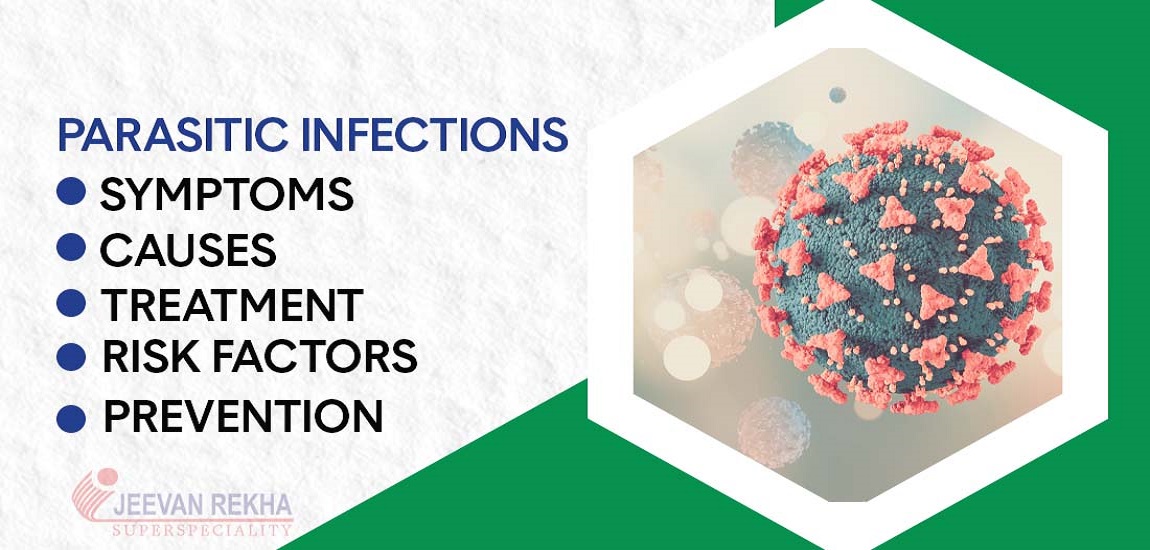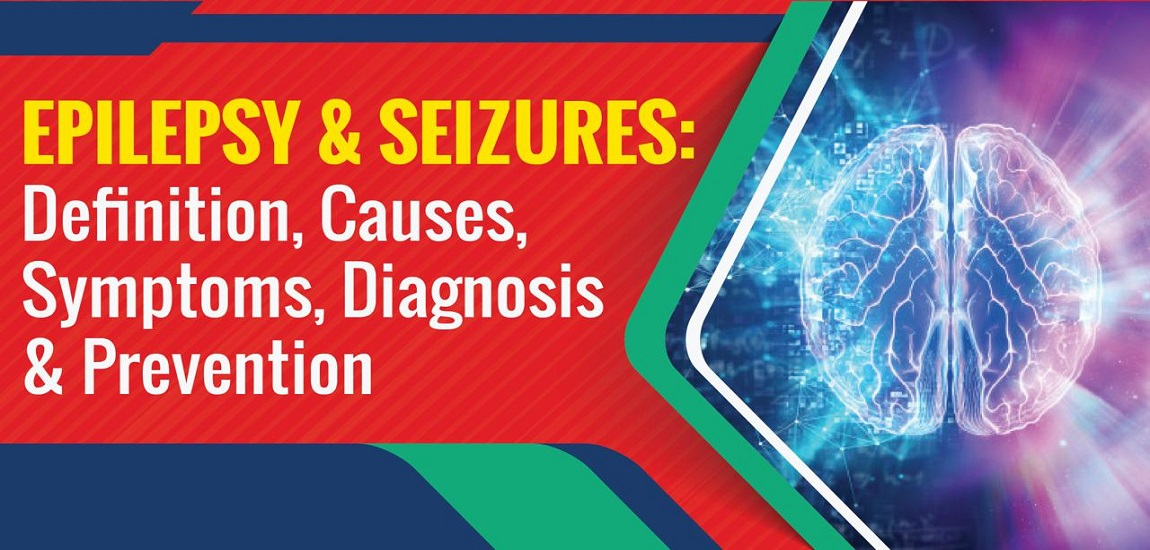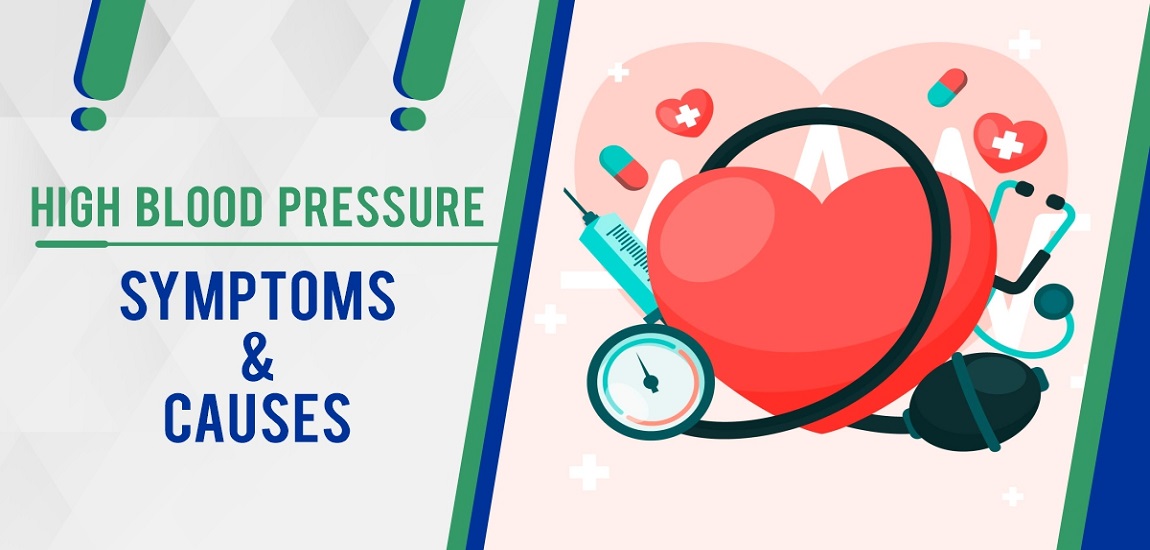
- By JRSH Admin
- In Health and Tips,
- Posted February 14, 2023
Parasitic Infections: Symptoms, Causes, Risk Factors, Prevention and Treatment
The existence of parasites depends on their host organisms. Ticks, lice, and hookworms are just a few of the parasites that can infect humans.
A parasite cannot survive, develop, and reproduce without a host. Because of this, parasites rarely cause the death of their hosts, but they can spread diseases, some of which are potentially fatal.
What are parasitic infections?
Parasites are the source of parasitic infection. To survive, parasites rely on other organisms, including people and animals. A host is a term for the parasites that reside on the organism.
There are parasitic organisms that do not infect the host, but there are others that do and kill the host. The parasites begin their life cycle as soon as they enter the host. They spread the infection to the host and grow there. This causes a parasitic infection. Parasitism is the term used to describe the condition.
Proteins that bind to glycans help the parasites attach to the host. Glycan-binding proteins of the parasite communicate with the host glycomes. The host glycan-binding protein and antibodies can also interact with the parasite glycans.
What are the types of parasites?
The characteristics of parasites are very diverse. Some worm parasites can grow to be over 35 centimetres long, though many are invisible to the human eye, like the malarial parasite.
Although they do not themselves cause disease, parasites can spread it. The effects of various parasites vary.
Three types of human parasites affect humans:
- Protozoa: A protozoan is a single-celled organism capable of multiplying in humans. A parasite may be spread through contaminated food or water, direct contact with another person, or insect bites. The ingestible parasite Cryptosporidium and the malaria-causing Plasmodium malariae are both protozoa.
- Helminths: A helminth is a parasitic worm that lives in the digestive system of an individual. As a result of these parasites being unable to multiply or divide within a human body, they eventually pass through a person's stool. Parasites such as Ascaris lumbricoides and hookworms belong to this group.
- Ectoparasites: An ectoparasite is an organism that lives outside a living organism. The most common of these are ticks, fleas, and lice.
What are the symptoms of Parasitic Infections?
The organism that is living in your body affects the signs and symptoms of parasite infestations. The following are some of the most typical signs and symptoms of parasite infection:
- Abdominal pain and cramps
- Vomiting or nauseous
- Dehydration
- Lose weight
- Swollen lymph nodes
- Constipation, diarrhoea, and/or persistent gas are among the digestive issues that may go undiagnosed.
- Skin conditions like itching, hives, eczema, and rashes
- A persistent ache in the joints and muscles
- Fatigue despite getting enough sleep
- Depression or an apathetic state
- Never satisfied even after a large meal
- The hunger that never goes away, even when you eat enough
- Anemia and iron deficiency
- Bruxing your teeth at night
- Unknown reasons for your anxiety
- Persistent yeast infections
- Anus or vaginal itchiness
- Itching, inflammation, redness, and a strange discharge from the genital area
- Having trouble falling asleep or getting up frequently during the night
These symptoms could resemble other digestive disorders' warning signs and physical manifestations. Therefore, getting a diagnosis to support your condition is crucial.
Toxins released into your bloodstream by the parasites can result in symptoms like erratic sleeping patterns, skin rashes, mood swings, and muscle pain. Even more troubling, these toxins may contribute to anxiety, which frequently shows up as erratic sleeping patterns or clenching and grinding of the teeth. When these toxins interact with your body's blood cells or neurotransmitters, you might also experience skin rashes or mood swings.
Causes of Parasitic Infections
Three different organism types can cause parasitic infections:
- protozoa
- helminths
- Ectoparasites
One-celled organisms known as protozoa are found in the majority of habitats on earth. The majority of species are free-living, but all higher animals have one or more protozoal infections. Depending on the host's resistance and the species and strain of the parasite involved, infections can range from asymptomatic to potentially fatal.
Multicellular organisms known as helminths can reside inside or outside of your body. They are more frequently referred to as worms. They consist of roundworms, tapeworms, flatworms, and thorny-headed worms.
Multicellular organisms known as ectoparasites live on or feed off of your skin. Insects and arachnids like mosquitoes, fleas, ticks, and mites are among the list of these.
There are numerous ways in which parasitic infections can spread. For instance, contaminated water, food, waste, soil, and blood can spread protozoa and helminths. Some can spread via sexual contact. Some parasites are transmitted by insects that serve as a disease's "vector" or "carrier." For instance, when mosquitoes feed on humans, they transmit parasitic protozoa that cause malaria.
Risk Factors of Parasitic Infections
A parasite infection can affect anyone. But some individuals are more defenceless than others. A parasite infection is more likely to affect you if you:
- have weakened immune systems or are already suffering from another illness
- living or visiting tropical or subtropical areas of the world
- lack of access to clean drinking water
- Swim in ponds, rivers, or lakes where parasites like Giardia or other worms are common.
- work in a setting where you frequently come into contact with faeces, such as childcare or a job that requires you to work with soil
How are Parasitic Infections Diagnosed?
Symptoms, coexisting conditions, and past travel history are a few examples of the variables that may influence the tests a doctor orders to identify a parasite infection.
Some of the procedures regularly used to identify a parasite infection include the following:
- Fecal examination: If someone is experiencing diarrhoea, gas, or other digestive symptoms, three or more stool samples may be taken on various days and examined for the presence of a parasite or parasite eggs.
- Endoscopy: A thin tube known as an endoscope may be inserted through the mouth into the intestines to look for any parasites if stool samples do not show them.
- Colonoscopy: Instead of an endoscopy, parasites may be found by inserting a tube through the rectum into the intestines.
- Blood tests: To identify a particular parasitic infection, a healthcare professional may conduct a blood test. Blood testing for antibodies or parasite antigens is known as serology. Another test is a blood smear, in which a drop of blood is examined under a microscope for parasites.
- Imaging tests: Lesions linked to parasites can be found in a person's organs with the aid of an X-ray. A physician may request a magnetic resonance imaging (MRI) or computerized axial tomography (CAT) scan to obtain more precise images of the organs.
Treatment of Parasitic Infections
Depending on the specific parasite, different treatments are available for parasite infections. Drugs that treat any symptoms, such as diarrhea, as well as those that kill the parasite may be prescribed by doctors.
The following drugs are frequently employed to treat different kinds of parasite infections:
- Metronidazole (Flagyl): This antibiotic treats amebiasis, giardiasis, trichomoniasis, and vaginal infections by killing parasitic infections in the gastrointestinal tract or reproductive system.
- Ivermectin (Stromectol): This drug treats parasitic infections in the gastrointestinal tract, eyes, or skin, including scabies and many different types of worms. It is available as an oral tablet, cream, or lotion.
- Praziquantel (Biltricide): This drug paralyzes and then dissolves tapeworms, causing them to separate from the intestinal wall and exit the body through a bowel movement.
- Pyrimethamine (Daraprim): Pyrimethamine and sulfadiazine may be prescribed by doctors to treat the flu-like symptoms of toxoplasmosis in healthy individuals, though treatment is not always required.
- Nifurtimox (Lampit): Nifurtimox and benznidazole are used to treat the signs and symptoms of Chagas disease (American trypanosomiasis). This parasitic infection may eventually harm internal organs.
- Chloroquine: This drug is used to treat malaria.
- Nitazoxanide (Alinia): This medication treats diarrhea brought on by intestinal parasite infections such as cryptosporidiosis and giardiasis.
How can Parasitic Infections be prevented?
You can follow these recommendations to lessen your chance of contracting a parasite:
- Wash your hands frequently.
- Ensure that you cook your food at the recommended temperatures. Undercooked food is hazardous.
- When travelling, especially, make sure the water you drink is clean and safe. Avoid consuming water from open lakes, streams, and ponds.
- Avoid touching cat litter and feces while you are expecting.
- Use condoms if necessary and other preventative measures when having sex.
Tags
Blog Search
Latest Posts
-
Implantation Bleeding Vs Periods: Know the Difference
March 12, 2025 -
5 Tips for a Happy and Healthy Summer
February 27, 2025 -
Body Ache (Pain): Causes, Symptoms and Treatment Options
February 10, 2025 -
Fatigue and Exhaustion: Causes, Symptoms, and Treatment
January 08, 2025 -
Testicular Health: Essential Facts and Care Tips for Men
December 27, 2024




